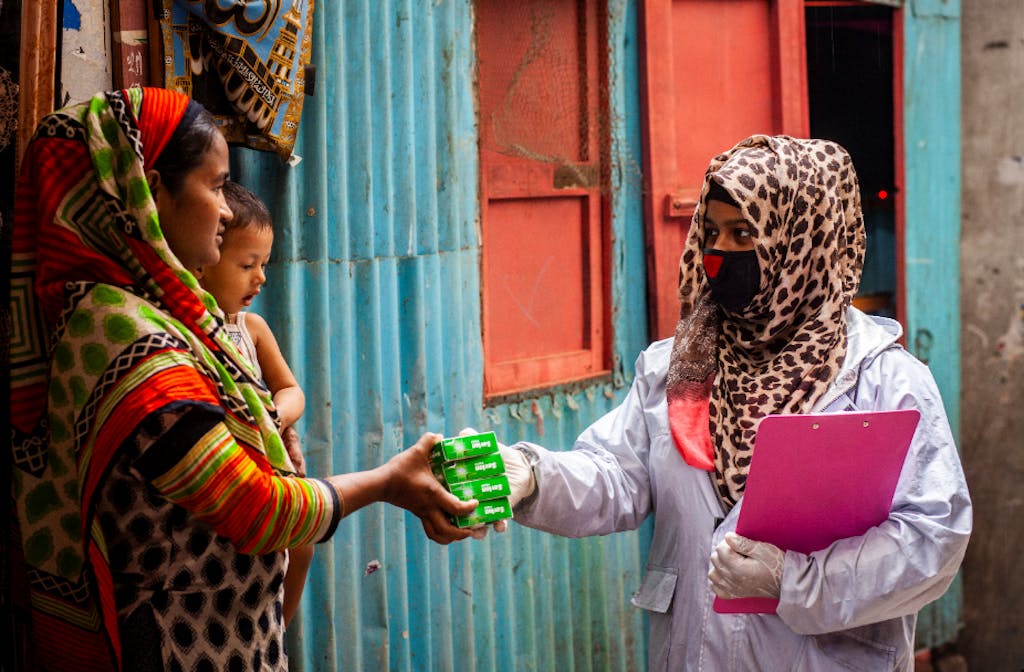This was supposed to be a pivotal year in the fight for gender equality. Twenty-five years after world leaders gathered in Beijing — where they made groundbreaking commitments to advance women’s rights through the Beijing Declaration and Platform for Action — this was a year to celebrate progress and engage a new generation of change-makers in the unfinished work ahead.
Instead, the COVID-19 pandemic has reversed hard-won gains toward gender equality. These distressing setbacks have been compounded by systems that don’t work for the people they purport to help and protect. And women and girls have borne the brunt of this impact.
As these challenges continue to deepen and entrench existing inequalities, it is even more critical to renew and sustain momentum on gender equality. We cannot afford to lose sight of the urgent need to ensure that girls and women — and entire communities by proxy — have the agency, rights, and resources to live healthy and fulfilling lives.
Today, world leaders are gathering virtually at the United Nations General Assembly to commemorate and refresh the commitments made 25 years ago in Beijing. But what was meant to be a celebration — and a road map for moving forward — has been dampened by the sobering recognition that the fight for gender equality is far from over.
Enter the Generation Equality Forum, which has launched six thematic Action Coalitions to stimulate renewed progress on gender equality. These Action Coalitions are global partnerships formed among governments, international organizations, private companies, and civil society. They are intended to drive progress in six key areas: gender-based violence; economic rights; sexual and reproductive health; climate justice; technology; and women’s leadership.
But these innovative Action Coalitions can generate lasting change only if gender data is prioritized as a fundamental component for success. Comprehensive gender data is essential for pinpointing challenges, guiding evidence-based policies and programs, and tracking whether rhetoric is being matched by action. It is imperative that Generation Equality Action Coalition leaders incorporate gender data into each Action Coalition in order to translate vision into action, and action into change.

At Data2X, a United Nations Foundation alliance that advocates for better gender data to improve the lives of girls and women, we are committed to putting gender data at the center of the gender equality movement. In our new brief series, Gender Data for Generation Equality, we outline three steps every Action Coalition must take to advance the lives of women and girls.
First, gender data must be used to develop a concrete, evidence-based agenda. Second, a gender data strategy should be developed to monitor progress and deliver on identified Action Coalition plans. And third, Action Coalition leaders must call for investment in the gender data necessary to track and measure progress.
Reaching gender equality has always been a momentous challenge, and in the face of current circumstances, the challenge is even greater. But this can — and must — be a global moment to renew our commitments and call on our leaders to not lose sight of the equality we envision for ourselves and for generations to come. Halted progress cannot be an excuse for halted leadership and action. Despite the pandemic-related chaos, 2020 can still be pivotal for gender equality.
At Data2X, we know that there is power in numbers — both in the numbers of leaders calling for change and in the numbers themselves, as gender data demonstrates what is working for girls and women and what is not. We have the opportunity and the tools we need to effect lasting change now.
Twenty-five years ago, leaders made revolutionary commitments that provided an important blueprint for gender equality. Today, it’s our turn to get to work so that 25 years from now leaders are building on our progress.
Emily Courey Pryor is the Executive Director of Data2X and Sarah Boyd is Director of Global Advocacy at Data2X, a dynamic platform hosted at the UN Foundation that promotes and enables the production and use of gender data to improve the lives of women and girls.




 View All Blog Posts
View All Blog Posts

